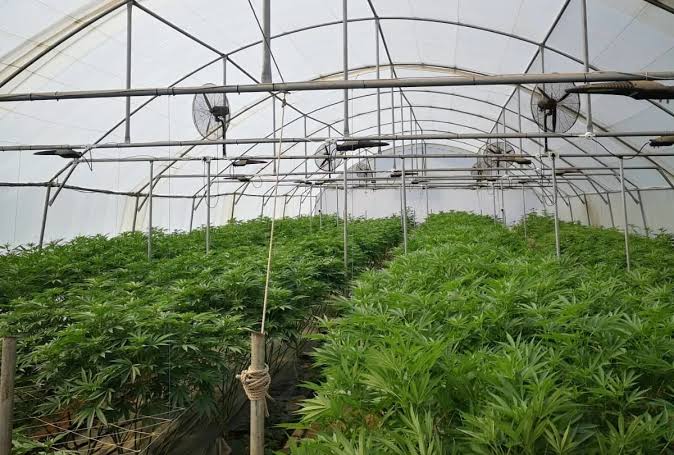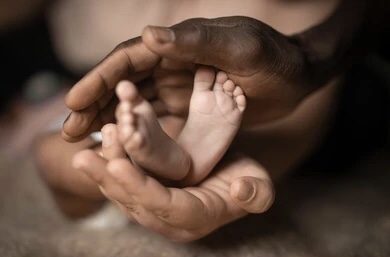
Faith Nyasuguta
In one of Johannesburg’s leafy suburbs in South Africa, green leaves adorn the walls of a school where students learn how to grow cannabis, but smoking pot is prohibited.
The co-founder of the institution, which styles itself as Africa’s first cannabis academy, notes that the teaching aims at dispelling the stigma around marijuana.
“It’s important for us to professionalize this industry and basically showcase that we’re not stoners with red eyes all the time talking about how great the weed is,” he says.
The academy hopes to ride a global re-think of cannabis regulations.
From Spain to California, a growing number of states are allowing people to light up.
In Africa, tiny Lesotho gave a nod to the cultivation of medicinal cannabis in 2017, giving way for others like Zimbabwe, Malawi and South Africa, which aspires to become a marijuana powerhouse.
In 2022, President Cyril Ramaphosa said cannabis has “huge potential” to draw investments and “create more than 130,000 new jobs”, a big pull in a country with an ailing economy and mega unemployment.
Named after a slang word for weed, the Cheeba Cannabis Academy is preparing students to partake in the expected bonanza.
“The industry, in order to develop, is going to need training and education,” says Siboto, 42.
CLASSWORK
School days commence with a yoga session, under a holistic approach, with subject matters including business, nutrition and futurism.
On a Thursday morning, about 12 students sit on wooden desks before donning white coats to enter a laboratory at the back of the classroom.
There Darian Jacobsen, a passionate cultivation teacher, showcases different pruning techniques before moving onto some common-sense tips that learners note down on their pads.
“She’s not dead, sick or dying, she’s just a little thirsty,” Jacobsen, 28, says of a droopy-looking plant he takes out of an indoor grow tent.
The academy began offering online classes in 2020 before moving to its current premises last year. The flagship course lasts 12 weeks and costs around $1,600.
So far, the institution has trained about 600 people and is hoping to get a leg-up from the government, which has announced grand but so far sketchy plans for cannabis.
In a 2018 landmark ruling, South Africa’s top court decriminalized private and personal use of cannabis.
It tasked parliament with the drawing up of legislation but that is overdue, creating much “confusion” over exactly what is allowed, says Simon Howell, a University of Cape Town researcher.
Selling cannabis outside the medical realm remains a crime.
Cannabis clubs, a system where members pay to have their plants looked after, have sprung up across the country, but the legality of the concept is currently being tested in court.
At the same time, the government has handed out hundreds of licenses to grow hemp and medical cannabis.
But even here, the industry is struggling to take off, analysts say.
In theory, South Africa has all it takes to become a major exporter.
Costs are lower than in some competitors, like Canada, for manpower is relatively cheap, the weather is mild and the local currency comparatively weak.
“We have incredible sun here and lots of land, legacy growers and experience,” says Cheeba’s co-founder Trenton Birch.
Cannabis cultivation is a more than a century old tradition in parts of the country.
SEEKS TO EXPORT
Yet, critics say the license system shuts out small farmers who have been growing cannabis illegally for decades, with starting costs hovering around a million dollars.
According to pharmaceutical expert and cannabis entrepreneur, Johann Slabber, many big growers are also having a hard time.
They produce more than enough to cover local needs but can’t export to Europe — the main target market — because their standards are too low and raising them often entails starting over from scratch, he says.
Out of almost 100 licensed farmers of medical cannabis, only five are currently exporting “on bulk scale” he says.
The government has promised to streamline regulations to help the market to thrive.
Funding a manufacturing facility that buys yield from farmers, processes it up to European standards and exports it directly, could also work, says Slabber.
Still, despite the challenges, many are betting on the industry to succeed.
The global cannabis market is expected to inflate to up to $272 billion in 2028, according to various estimates.
South Africa’s slice is forecast to balloon to $22 million in 2026, from $5 million in 2021, according to market research agency Insight Survey.
Expecting an rise in demand for specialized workers, other education providers have started operating alongside Cheeba.
RELATED:




